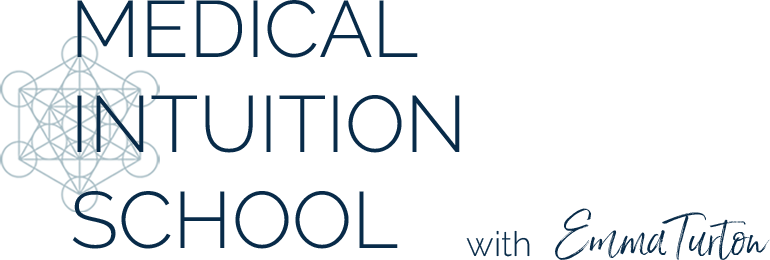Medical Intuition: Unlocking the Power of Mind-Body Connection
Medical intuition is a controversial yet intriguing field that proposes a profound connection between our minds and bodily health. To the skeptics, it can sound like pseudoscience, a collection of speculative theories and anecdotal evidence. However, proponents view it as a crucial part of holistic health, an approach that complements traditional medical practices and greatly influences our overall well-being.
In the realm of medical intuition, the idea that the mind can influence the body’s health isn’t new. Ancient healing practices often incorporated a deep trust in the mind’s power to initiate or reverse disease states. The practice has seen a resurgence recently, with more people looking beyond traditional medicine for health and healing. But what exactly is medical intuition, and how can we harness the mind-body connection for better health?
The Basics of Medical Intuition
Medical intuition can be defined as a direct knowing, or sensing, of the physical and/or emotional condition of a person’s body. This insight occurs without the medic intuiting from conventional medical tests. Medical intuitives claim to ‘see’ imbalances in the body’s energy fields, or to intuit from subtle body language and emotions. The goal is to identify and resolve health issues at their source.
While it may sound mystical, proponents argue that this insight is not paranormal in nature. Rather, they suggest it’s an amplification of our natural healing instincts, similar to the way a dog might sense a person’s mood or health. This intuition is thought to be deeply rooted in the subconscious mind, where most of our body’s healing processes take place without conscious awareness.
Holistic Perspectives
At its core, medical intuition adopts a holistic viewpoint that understands the interconnectedness of the various components of the human body. Placing emphasis on the role of the spirit and mind in maintaining physical health, this approach doesn’t just treat symptoms—it looks for the underlying issues responsible for causing them.
The Science Behind Intuition
The science of intuition is not well-understood, primarily due to its subjective and individualistic nature. The concept falls into a gray area that’s difficult to measure and study in controlled environments. However, there’s emerging research in fields like neurology and psychoneuroimmunology (PNI) that suggests a physical basis for the mind’s influence on the body.
Neurology and Mind-Body Connection
Neurological research is revealing the intricate connections between the brain and other body systems. The brain’s interpretation of emotions, thoughts, and beliefs has measurable effects on everything from blood pressure to the immune response. The field of neuroplasticity, where the brain changes and adapts in response to experience, is particularly relevant to the idea of altering health outcomes through mental practices.
Psychoneuroimmunology (PNI)
PNI explores the interaction between psychological processes and the nervous and immune systems. There’s evidence to show that states of mind, like anxiety and depression, have a direct influence on immune function. Positive psychology and the effects of meditation on the brain and body are burgeoning areas of research that may one day contribute to our understanding of medical intuition.
Practicing Medical Intuition
The practice of medical intuition is multifaceted and often includes a variety of methods for tapping into the intuitive process. While some individuals claim they were born with an innate ability, it’s believed that anyone can develop their intuition with the right training and practice.
Training and Development
Developing medical intuition involves honing self-awareness and learning to trust one’s instincts. Training typically involves meditation, visualization, and understanding the chakra or meridian system, which are thought to be related to the body’s energy flow.
The Role of the Intuitive
A medical intuitive must balance intuition with grounded knowledge. It’s not a replacement for traditional medical training but works in harmony with it. Intuitive practice often involves working with healthcare professionals to offer an additional perspective or to support clients who have more chronic health issues.
Real-World Applications
Medical intuition has the potential to offer a new lens through which to view health problems, but its applications go beyond diagnostics. Many who practice medical intuition believe it can also influence health outcomes by helping individuals make the necessary changes to address their health issues.
Addressing Emotional and Spiritual Health
Medical intuitives often work to identify unresolved emotional traumas that may be affecting a person’s health. This emotional release can be a powerful tool in restoring balance to the mind and body.
Lifestyle Adjustments
Medical intuitives may also make recommendations for dietary changes, increased physical activity, or other lifestyle adjustments to support the healing process. These changes are often tailored to the individual’s specific needs and health challenges.
The Future of Medical Intuition
While medical intuition remains on the fringes of conventional medical practice, there’s a growing body of anecdotal evidence and support from those who have experienced its benefits. The field is likely to continue evolving as we better understand the mind’s role in health and the tools available to amplify our intuitive capacities.
Integration with Traditional Medicine
A future where medical intuition is integrated with traditional medicine isn’t out of reach. The emerging field of integrative medicine seeks to combine the best of both worlds, offering patients personalized care that includes mind, body, and spirit.
Continued Research and Exploration
With advances in our understanding of the brain and mind-body interactions, we may one day have a clearer understanding of the mechanisms behind medical intuition. Continued research and exploration will be essential in order to unlock its full potential.
In conclusion, medical intuition prompts us to explore the power of our minds not just as an instrument for cognition, but as part of a dynamic system that influences our health in profound ways. Whether or not you are a believer, it’s worth considering the impact of our thoughts, beliefs, and emotions on our well-being. After all, the first step to unlocking any power is to acknowledge that it exists.
